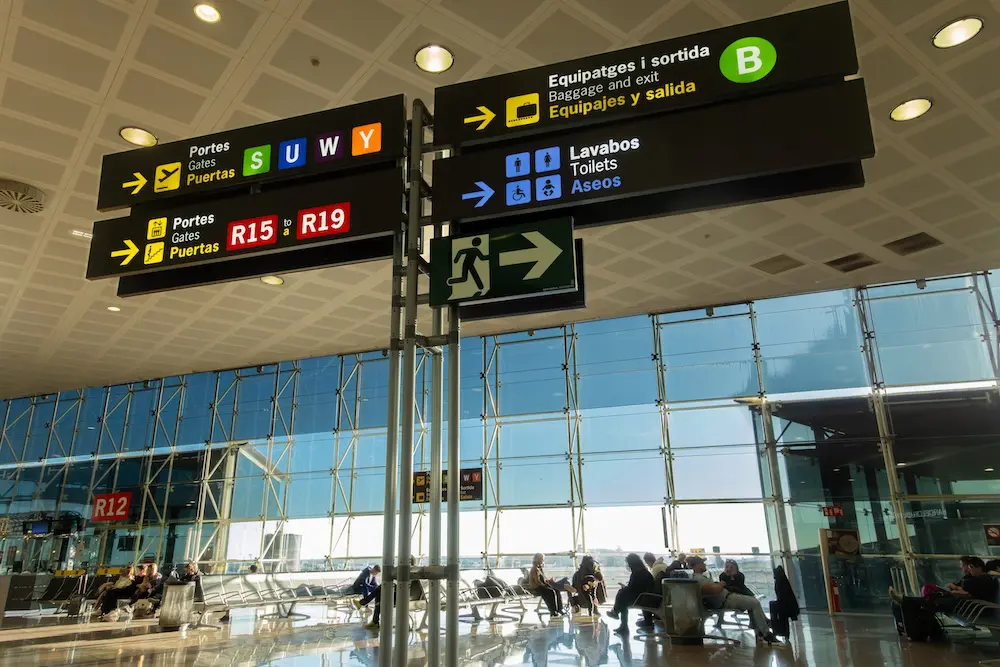Spain and Portugal have each declared states of emergency, with both nations struck by widespread power outages on Monday (local time).
The blackouts, which hit large parts of Spain and Portugal, impacted travel and tourism with airports, trains, roads, hotels, restaurants, retail outlets and other services affected.
The outages also hit wifi, mobile networks and cash facilities like ATMs, while many people were even left without water.
According to Euronews, the power outages impacted highly populated areas in Spain, including capital Madrid and tourism hotspot Barcelona, as well as major cities like Seville, Avila, Murcia, Galicia, Alicante and Zaragoza. In Portugal, the two largest cities, Lisbon and Porto, were also hit hard.

Spain’s interior ministry says regions like Madrid, Andalusia and Extremadura requested emergency status and central government control, with authorities deploying around 30,000 police across the country to maintain order, Reuters reported.
“This is something that has never happened before,” Spanish Prime Minister Pedro Sanchez said.
While Spanish power distributor Red Electrica said electricity could be restored within 10 hours, many parts of Spain remain without power.
Meanwhile, Portuguese power company REN warned that it could take up to a week to fully restore the grid, The Independent reported.
REN said that the blackouts may have been sparked by “extreme temperature variations”, which created havoc with Spanish and then Portuguese electricity lines. But Red Electrica declined to speculate on the cause of the outages. There is so far no evidence of any cyberattack.

According to Reuters, power to parts of the Iberian Peninsula has returned, with more than 60% of electricity restored by late Monday, Spain’s national grid operator stated.
However, Madrid Mayor Jose Luis Martinez-Almeida urged people to stay at home as street lighting had not been fully restored in the capital.
”It is essential that the emergency services can circulate,” he said on X.
Air update
Meanwhile, airports in Spain and Portugal were also hit by the blackouts, sparking travel chaos.
While no hubs closed completely thanks to backup generators, hundreds of flights were cancelled, particularly to Lisbon Airport, Euronews reported.
Some international and domestic flights at Madrid and Barcelona airports were impacted, however hubs in Alicante, Malaga, Canary Islands and Balearic Islands were operating close to normal.
In a post on X, Spanish airport operator Aena advised passengers to contact their airline for updates.
“We recommend that passengers check the status of public transportation services arriving at the airports and consult with their airline about their flight status regarding possible rescheduling from yesterday,” the group stated.

On the ground
On its Smartraveller website, the Australian Government hasn’t changed its travel advice for Spain and Portugal.
Gill Gaspar, Managing Director of Sydney-based Discover Portugal & Spain Holidays told Karryon on Tuesday that the event had caught both countries “completely off guard”.
“It was a very chaotic event with lots of confusion… especially for those needing to get flights and trains, which we are still trying to sort for them as the high speed internal rail network is still not operating yet, but we have one of our staff based over there at the moment who also has been able to help when needed,” he said.
Gaspar flagged that one of the biggest concerns had simply been communication.
“Some of the main issues had been the lack of mobile and wifi networks, which made it practically impossible to be able to communicate internally there, but from what we have been told, 70% of the grid is now operational and getting better all the time,” he said.
“We have been starting to get news back as people get mobile and wifi access, and so far they are all well and have been looked after by the hotels and our ground operators.”
And fortunately for some of Gaspar’s clients, many were carrying cash.
“Many had euros on them, which allowed them to pay for things like water and food as the ATMs as well as all card terminals in stores, were also down,” he told Karryon.
“We are continually monitoring the situation and sorting out any issues our clients may still have.”






